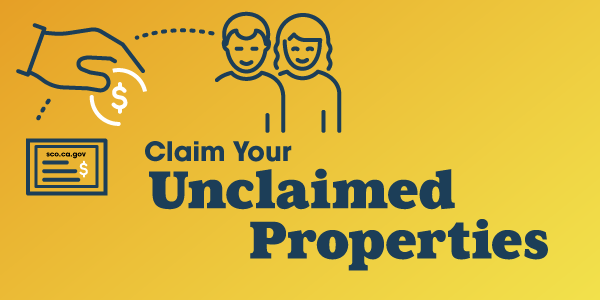
The State of California is trying to return approximately $13 billion to its rightful owners. Is some of it yours?
California’s unclaimed property laws require “holders,” such as corporations, business associations, financial institutions, insurance companies, and others, to annually deliver and report to the State Controller's Office after there has been no customer contact for over three years. Often the owner forgets that the account exists, moves and does not leave a forwarding address, or the forwarding address expires. In some cases, the owner dies and the heirs have no knowledge of the property.
Unclaimed property is generally defined as any financial asset left inactive by its owner for a period of time, typically three years. California unclaimed property law does not include real estate.
The most common types of unclaimed property are:
- Bank accounts and safe deposit box contents
- Stocks, mutual funds, bonds, and dividends
- Uncashed cashier’s checks and money orders
- Certificates of deposit
- Matured or terminated insurance policies
- Estates
- Mineral interests and royalty payments
- Trust funds and escrow accounts
- Utility account deposits
To find potential money, visit the State Controller’s Office and search the Database of Unclaimed Properties for money that the state may owe you.